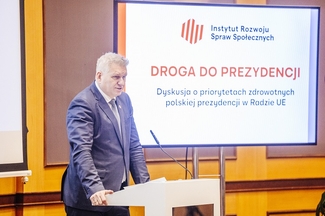Pobierz materiał i Publikuj za darmo
Cross reference: Picture is available at AP Images (http://www.apimages.com) and http://www.presseportal.ch/nr/100021616/
Nyon, Switzerland (October 20, 2015) - Embargoed until 05:00h CET
New findings released on World Osteoporosis Day by the International Osteoporosis Foundation (IOF) show that 89% of those who used the new IOF Calcium Calculator - which is based on Institute of Medicine (IOM) recommendations* - were calcium deficient. The free online tool helps people calculate their approximate daily calcium intake based on their typical weekly diet.
- IOF Calcium Calculator (http://www.iofbonehealth.org/calcium-calculator)
- Survey results infographic (http://www.worldosteoporosisday.org/press-centre)
Calcium is a major building-block of our bone tissue, with 99% of the body’s calcium stored in the skeleton. Along with vitamin D, protein and other micronutrients, adequate calcium intake helps young people build strong bones in order to maximize their bone mass potential and older people maintain their bone health as they age.
Calcium recommendations vary worldwide, with recommended intakes based on age and gender. According to the Institute of Medicine (IOM), young people aged 9-18 should have a calcium intake of 1300 mg/day, while postmenopausal women and men aged over 70 should be getting at least 1200 mg per day.
The Calcium Calculator results, based on 6,908 users from 83 countries, showed that:
- The average calcium intake was 594 mg per day. Even if an additional 300 mg is added to this total to account for any calcium obtained through sources not included in the calculator, the users would still be deficient
- Men and women had almost equal percentages of insufficiency (89% vs 90% respectively), with no significant difference across the age groups
- 11% achieved sufficient calcium intake levels
- 29% of respondents had previously been diagnosed with osteoporosis or osteopenia
Judy Stenmark, CEO, IOF, stated “These findings suggest that many people may not be aware of the importance of bone-healthy nutrition. A healthy, balanced diet combined with regular exercise and smart lifestyle choices, such as not smoking and moderate alcohol intake, helps set the foundation for strong bones as you age. For those at high risk of fracture due to osteoporosis, a bone-healthy diet also supports falls prevention and enhances the benefits of therapy.”
She added “Recent controversial reports in the media in regard to calcium, vitamin D and the role of supplementation may be causing confusion. The important thing to remember is that achieving recommended dietary intakes of calcium and vitamin D, together with other important nutrients, is necessary for optimum bone health. It should be recognized that calcium intake recommendations vary around the globe. IOF uses IOM recommendations as our reference standard but supports the use of national/local intake recommendations. Calcium needs should be met through food sources primarily. Supplements may be beneficial if adequate calcium intake cannot be met through the diet, especially where certain medical conditions exist. Anyone with concerns should speak to their doctor who can advise appropriately.”
Osteoporosis, a chronic disease which causes bones to become weak and prone to fracture, affects approximately one in three women and one in five men aged over 50. Osteoporotic fractures are a major cause of pain, disability, and loss of independence in seniors worldwide.
Media contact:
Charanjit Jagait
phone +41 79 874 52 08
e-mail: cjagait@iofbonehealth.org
Calcium Calculator available free of charge:
Online: http://bit.ly/calcium-calculator-web
iPhone App: http://bit.ly/calcium-calculator-iOS
Android App: http://bit.ly/calcium-calculator-android
*Calculator uses IOM recommendations for all countries, with the exception of Italy where national recommendations were provided.
World Osteoporosis Day (WOD), observed on 20 October, marks a year-long campaign www.worldosteoporosisday.org #LoveYourBones
WOD Official Partners: Amgen, Fonterra, Pfizer Consumer Healthcare, Lilly, MSD, Takeda
WOD Nutrition Supporters: DSM, Rousselot, Sunsweet
Pobierz materiał i Publikuj za darmo
bezpośredni link do materiału
| Data publikacji | 20.10.2015, 11:50 |
| Źródło informacji | APA-OTS |
| Zastrzeżenie | Za materiał opublikowany w serwisie PAP MediaRoom odpowiedzialność ponosi – z zastrzeżeniem postanowień art. 42 ust. 2 ustawy prawo prasowe – jego nadawca, wskazany każdorazowo jako „źródło informacji”. Informacje podpisane źródłem „PAP MediaRoom” są opracowywane przez dziennikarzy PAP we współpracy z firmami lub instytucjami – w ramach umów na obsługę medialną. Wszystkie materiały opublikowane w serwisie PAP MediaRoom mogą być bezpłatnie wykorzystywane przez media. |







